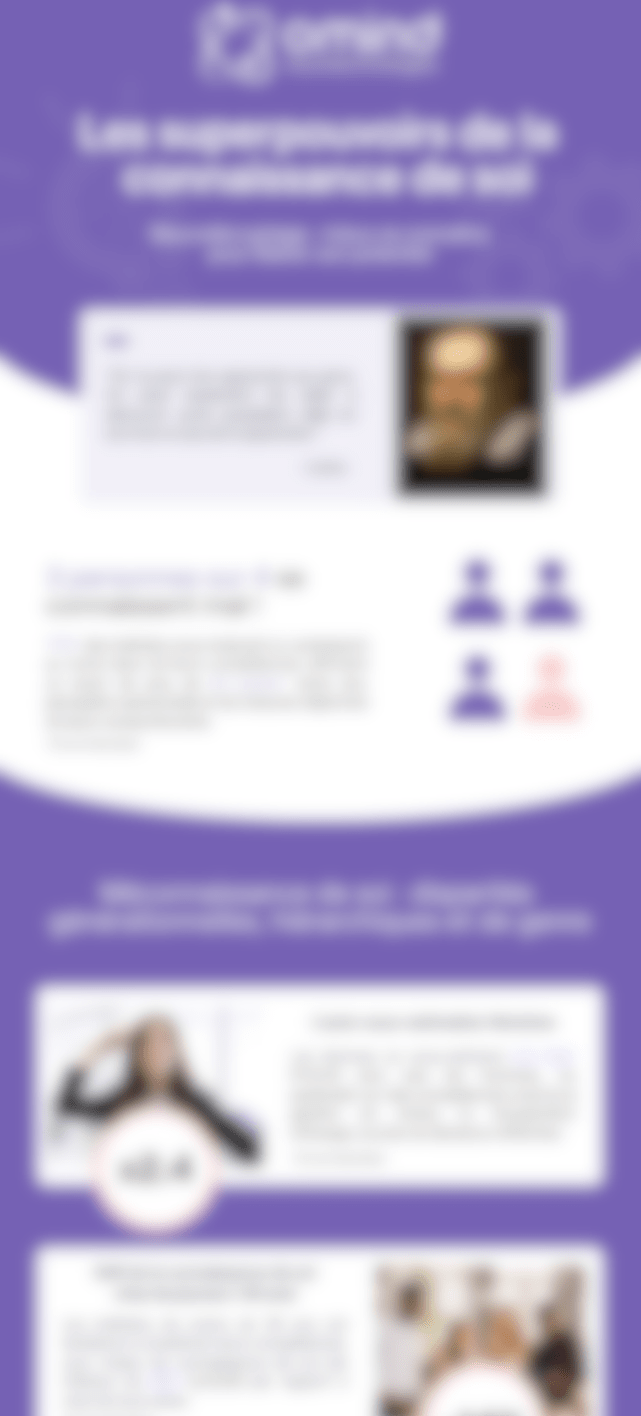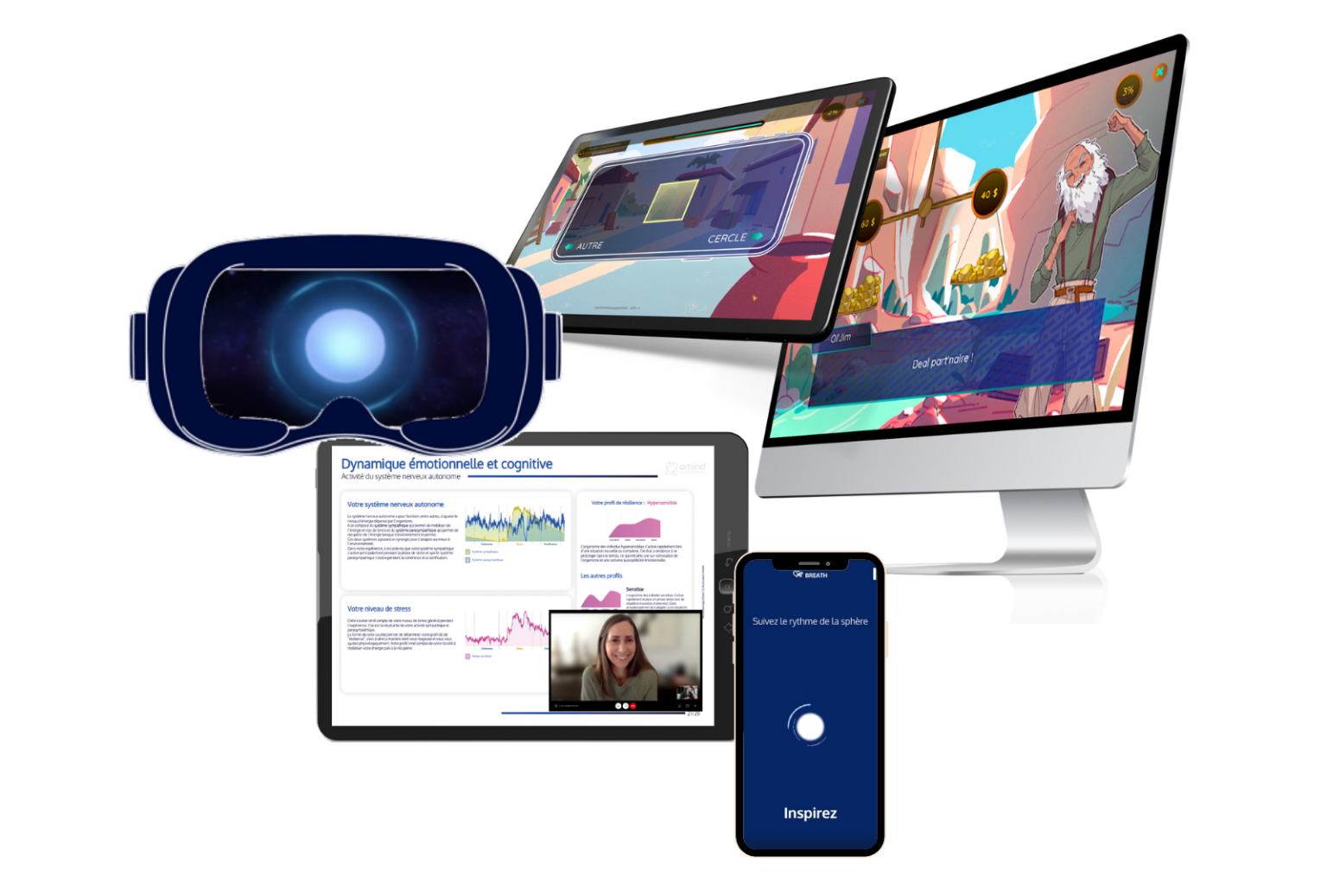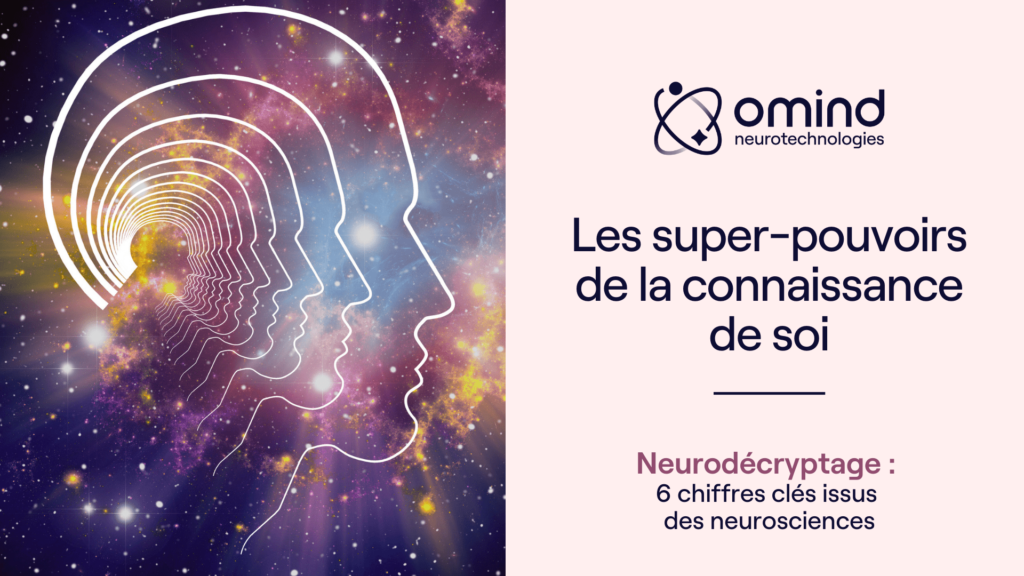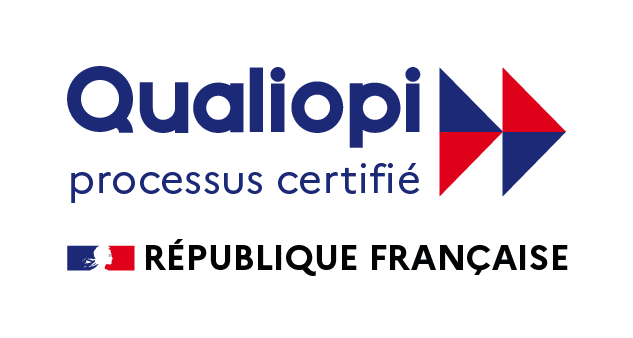How well do you really know yourself? According to the Omind scientific database, 3/4¹ OF EMPLOYEES rate themselves poorly on 2 or more of their skills.
In the professional world, a lack of self-awareness can be an invisible obstacle to both career development and personal fulfillment.
Self-knowledge is the deep, conscious understanding of one’s own emotions, motivations, values and behaviors. It is therefore THE key skill for committed, resilient, successful and adaptable leaders in 2024. What’s more, it guarantees the company that its HR actions target the right skills and GENERATE KING.
Discover in our latest infographic 6 KEY FIGURES on the power of self-knowledge and its impact on performance and well-being ⬇
DOWNLOAD THE INFOGRAPHIC ON KEY FIGURES IN SELF-KNOWLEDGE

SOME KEY INSIGHTS

x2.4
Female self-underestimation
Women underestimate themselves 2.4 TIMES¹ (P<0.01) more than men, especially when it comes to stress management, recovering energy and making informed decisions.

-14%
Self-awareness among young people (under 35)
Under 35: overestimation of skills. Young people’s level of self-knowledge is 14%¹ (p<0.05) lower than their elders.

+20.6%
Performance at work
Metacognitive thinking (deep understanding of one’s own thinking and learning styles) increases employees’ performance at work by 20.6%².
SELF-KNOWLEDGE: THE KEY TO PROFESSIONAL AND PERSONAL SUCCESS

Most learners think they’re in control of their personal understanding, but the reality is often different, impacting their commitment to learning. As a result, conventional coaching and training courses don’t always target the right people or the right subjects.
=> Up to 74% of HR development investments miss their target!
At Omind, we believe in the power of self-awareness to propel everyone towards excellence. Discover our self-awareness tools, 4 TIMES more powerful thanks to scientific data, and designed to guide your talents towards 21st century leadership. What’s more, collect HR ANALYTICS for targeted coaching and training!
¹ Database Omind (4,300 leaders); Difference between questionnaire and actual responses > 20 points
² Ridley et al. 2010

